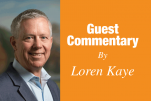Even before COVID-19, many Californians were struggling with the high cost of living here. The long-time willingness of many Californians to pay the “sunshine tax” premium for living in a state with great weather, universities, entrepreneurial culture, and lifestyle has eroded in the face of high costs of daily life.
Things have gone from bad to worse during the pandemic crisis. The Sacramento response to the economic and jobs calamity has been not to cut costs, but instead propose more taxes—higher property taxes on commercial, industrial and agriculture property; a new sales tax on services; a new tax on jobs; and most recently another hike in income taxes for families and small businesses that make more than $1 million a year.
Perception Gap
These tax proposals each present a host of policy problems, but more broadly they reveal a massive gap between the lawmakers making decisions in Sacramento and the views and needs of average Californians trying to get ahead and take care of their families.
Sacramento politicians hear “tax” and envision billions of dollars in additional revenue to fix all those basic problems they haven’t solved to date—worsening schools, deteriorating infrastructure, homelessness, economic disparities—despite having spent a trillion dollars in the last five years to address these problems.
California voters hear “tax” and think about the dollars coming out of their pockets, and wonder if they’ll ever see much benefit from government spending their money.
Problems with Tax Proposals
But beyond the politics, these measures have profound policy problems.
• Hiking taxes on the wealthy will send a message to the very people who together provide 40% of personal income tax revenue: is it worth it to you to keep California as your home and business location? One take-away from the recent catastrophe is that skilled individuals can work at or start a business from almost anywhere. And even higher income taxes will exacerbate the state’s budget volatility.
• Creating a new tax on services will drive up the costs of nearly every good and service in the state, hamper our efforts to build affordable housing and infrastructure, and punish small businesses.
• Proposition 15 claims to target just big commercial and industrial owners, but it also taxes farmers and ranchers, driving up food costs, hikes costs on small businesses who lease their space, and eventually winds up being paid by consumers.
• A tax on jobs created by large employers will have the predictable effect: fewer jobs created by these employers—at least in California.
Trend in Voter Views
A recent poll of California voters by EMC Research for the California Tax & Budget Research Project revealed some trends long felt by California voters and long understood by those who actually listen to them:
• 66% of likely voters at the November election said they agree that California taxes are out of control and they would oppose any tax increase.
• 77% of these voters said they agree taxes on corporations and businesses just get passed on to consumers in the form of higher costs.
COVID-19 and the resulting impacts on the state budget don’t change this foundational reluctance toward taxes.
When asked about the $54 billion budget deficit due to the pandemic, by a 2 to 1 margin voters said California is too expensive and highly taxed already, and would oppose any tax increases because they would make a bad economy worse and raise costs for consumers. They soundly rejected the position that the state needs to consider increasing taxes to fund schools, health care and COVID-related services.
Put simply, voters have had enough. They’re wise to the shell game pretending taxes on someone else won’t get passed on to all residents.
Nobody in California is immune to the havoc wreaked by the COVID-19 pandemic–a health crisis compounded by an economic collapse which is eroding our social cohesion. We’ve seen how an economic recovery can be thwarted by new virus outbreaks. Our elected leaders should similarly resist public policies that would prevent a healthy restoration of jobs and the economy.
Loren Kaye is the president of the California Foundation for Commerce and Education, a think tank affiliated with the California Chamber of Commerce.


